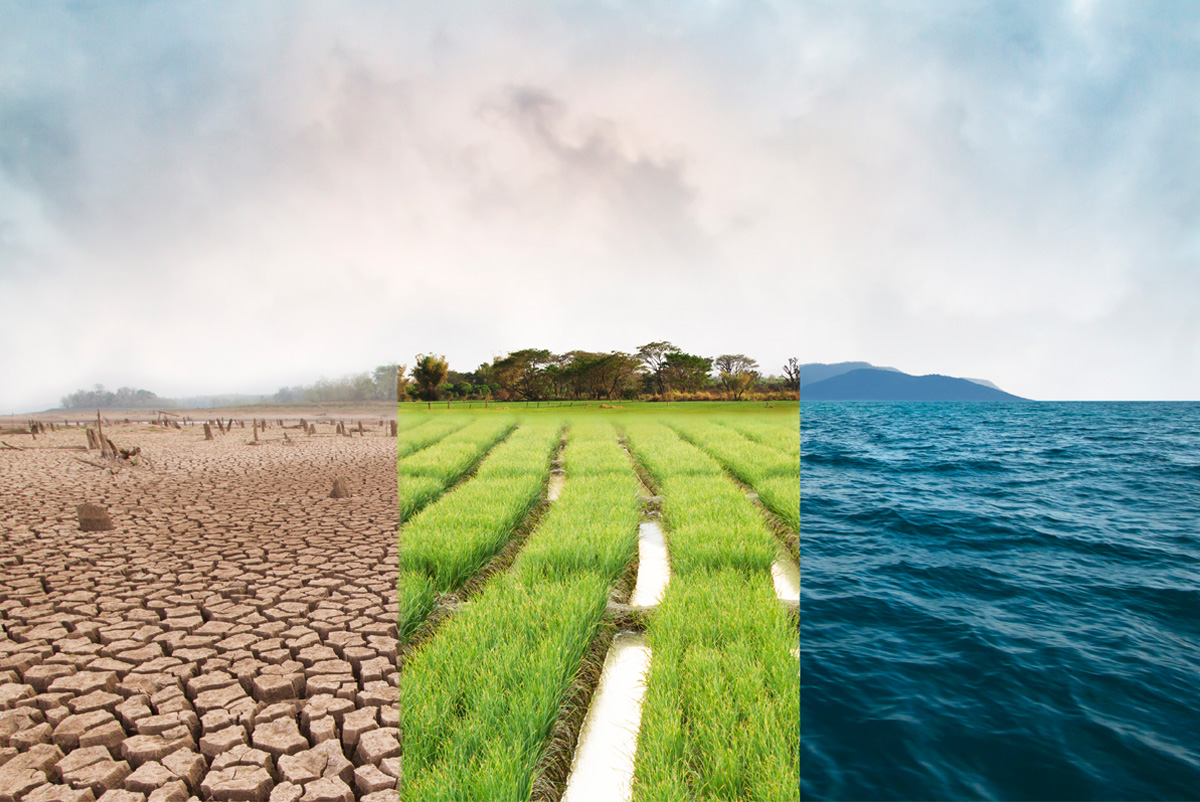
IPCC Report Reveals Agriculture can Halve Emissions by 2030; Help Climate Change Adaptation
April 13, 2022| |
The latest Intergovernmental Panel on Climate Change (IPCC) report released on April 4, 2022, reveals that the average annual global greenhouse gas emissions were at their highest levels in human history from 2010 to 2019, but has now slowed.
The Report states that limiting global warming requires major transitions in the energy sector that will involve a substantial reduction in fossil fuel use, widespread electrification, improved energy efficiency, and the use of alternative fuels (such as hydrogen). Options for all sectors to at least halve the emissions by 2030 include the following:
- Reduction in emissions in cities and urban areas can be achieved through lower energy consumption, electrification of transport, and enhanced carbon uptake and storage using nature.
- Reducing emissions in industry—which accounts for a quarter of global emissions—will involve using materials more efficiently, reusing and recycling products, and minimizing waste.
- Agriculture, forestry, and other land use can provide a large-scale reduction in emissions and also remove and store carbon dioxide at scale. Response options in this sector can benefit biodiversity, help climate change adaptation, and secure livelihoods, food and water, and wood supplies.
The report emphasizes that the next few years are critical in limiting global warming to 1.5°C (2.7°F), saying that this will be impossible without immediate and great emission reductions across all sectors.
For more details, read the press release on the IPCC website.
| |
You might also like:
- 5 Ways Biotech Crops Slow Down Climate Change
- Climate Change Affecting Billions of Lives; Impacts Irreversible, Latest IPCC Report Says
- IPCC Report: Climate Change Widespread, Rapid, and Intensifying
Biotech Updates is a weekly newsletter of ISAAA, a not-for-profit organization. It is distributed for free to over 22,000 subscribers worldwide to inform them about the key developments in biosciences, especially in biotechnology. Your support will help us in our mission to feed the world with knowledge. You can help by donating as little as $10.
-
See more articles:
-
News from Around the World
- IPCC Report Reveals Agriculture can Halve Emissions by 2030; Help Climate Change Adaptation
- Trends on GM Foods Consumer Perception Help Identify Policy Recommendations
- ICRISAT Develops Iron-fortified Pearl Millet
- Nigeria Starts National Performance Trials for TELA Maize
- Genome Sequence of Forage Grass Now Available
- Brazil's Biotech Sugarcane Area to Double in 2022
- Shifting to Non-GM Feed Ingredients Less Beneficial to Environment, Producers and Consumers - Report
- Agri Experts Help Identify Behavioral Factors that Influence GM Tech Acceptance
-
Research Highlights
- Bacteria that Kills Fungus Affecting Sugarcane Yields Discovered
- Protein Discovery Reveals Mechanisms of Nitrogen Assimilation in Plants
- Researchers Reveal Genetic Basis of Watermelon Seed Size
-
Plant
- Novel Plant Breeding Techniques Boosts Cereal Production
-
Read the latest: - Biotech Updates (February 18, 2026)
- Gene Editing Supplement (January 28, 2026)
- Gene Drive Supplement (February 22, 2023)
-
Subscribe to BU: - Share
- Tweet

